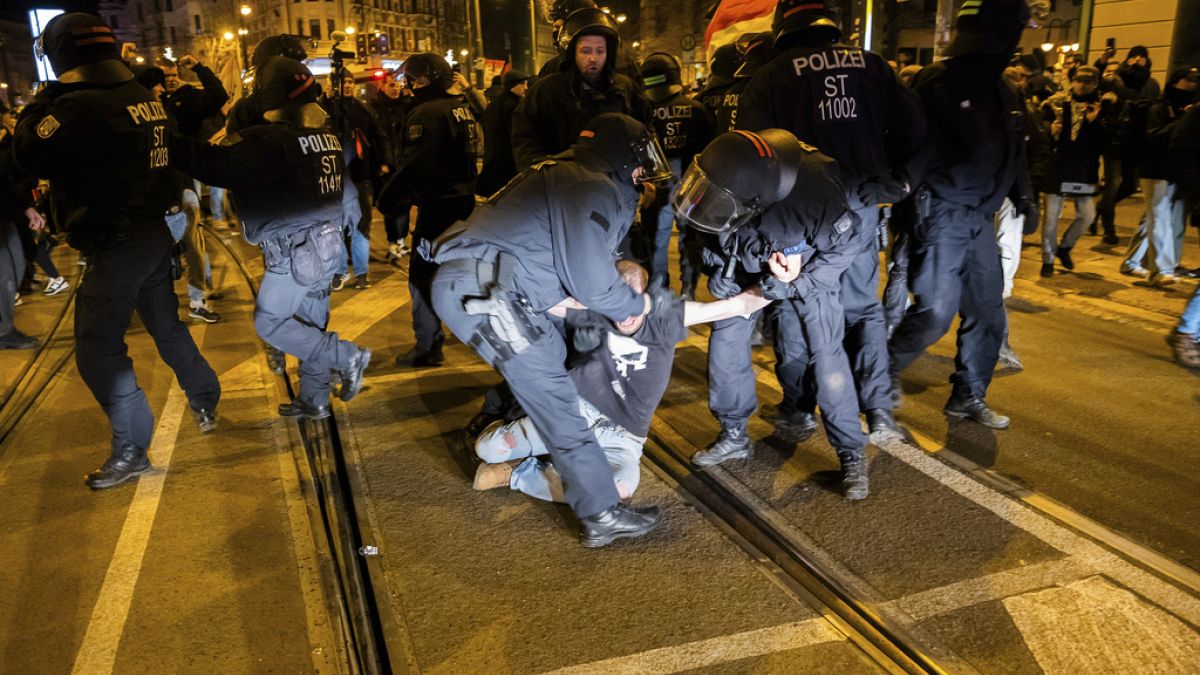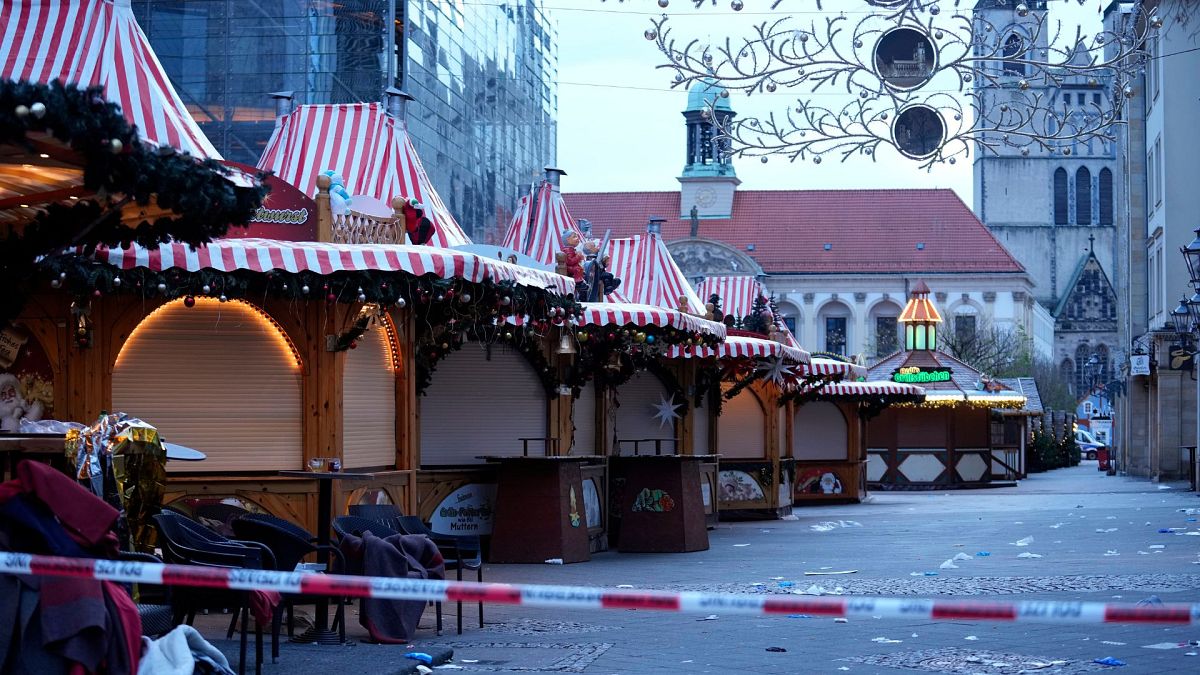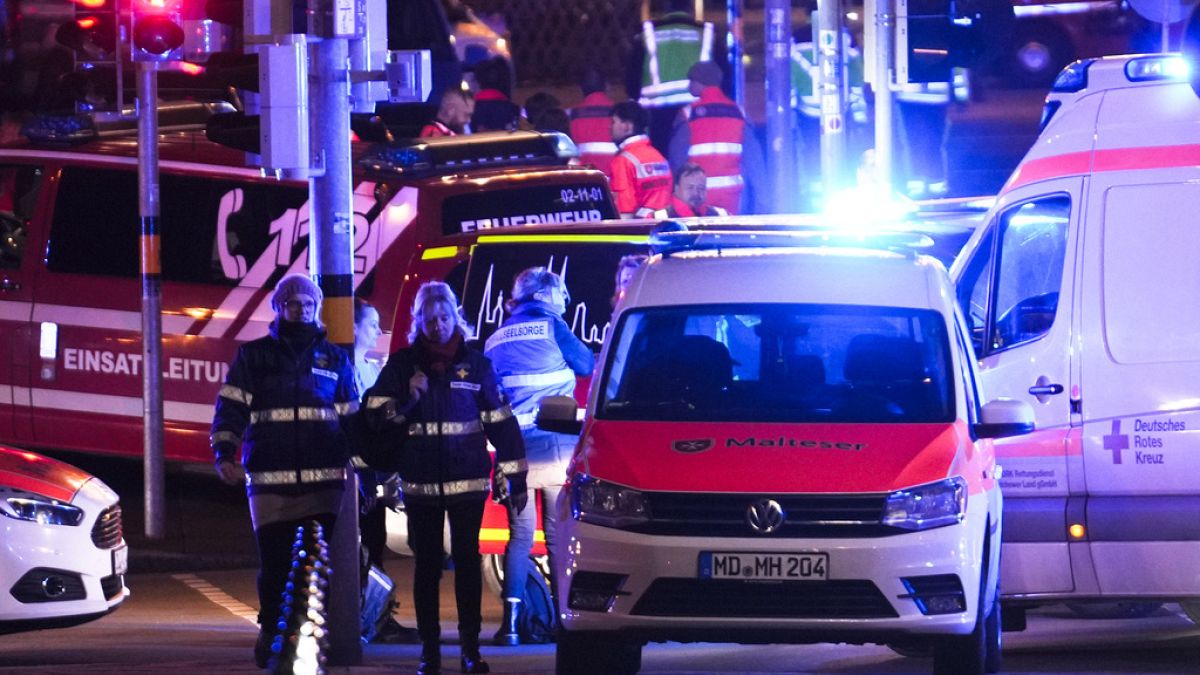What’s the point in calling far-right groups ‘extremists’?

While most European countries have a system in place to fight domestic and international terrorism, they lack a specific way of dealing with extremist groups.
This week Germany’s domestic spy agency formally declared the youth wing of the far-right party Alternative for Germany (AfD) an extremist group – a decision with significant consequences for its young members.
Germany, a country which has seen a rise in extremism in recent years and is particularly wary of such movements due to its history, said the Young Alternatives represented a threat to democracy.
In response to the decision, the Young Alternatives said the country’s spy agency was “simply doing its job, which essentially consists of repressing the opposition”.
The classification won’t affect the AfD at large. The party, founded in 2013, is currently the country’s most successful far-right party since World War II.
It’s only a few percentage points behind the Greens and the Social Democrats (SPD) in the polls.
Just last year German authorities successfully foiled a coup from a far-right group which had plans to overthrow the government and install a relatively unknown aristocrat with ties to Russia as leader.
More European countries should take the threat of extremism as seriously as Germany does, expert Lorenzo Vidino, Director of the Program on Extremism at George Washington University, told Euronews.
Germany “has this dual categorisation of groups they monitor,” he said. “There’s terrorist groups and extremist groups.”
Terrorist groups “are obviously banned, they’re not allowed, they’re illegal – and then you have the second category… extremist groups, which are groups that are not illegal per se, but they are monitored by the authorities,” he continued.
What impact does the ‘extremist’ label have?
While being labelled an extremist group doesn’t make an organisation illegal or render membership a crime, it leads to a variety of consequences for participants.
“It allows the authorities to have certain powers to monitor these groups,” Vidino explained.
“There are also consequences on specific individuals that are members of extremist groups. So if you’re a member of a terrorist group like ISIS, for example, it’s a crime and that’s it,” he continued.
“If you’re a member of an extremist group, it’s not a crime – but there are a variety of other consequences, mostly administrative. In some cases, for example, you may be banned from holding a public position; if you’re not a German citizen, then you might have your immigration permit removed.”
This week’s decision to proscribe AfD’s youth wing could impact members’ chances of employment in public administration, and other public roles, and affect their ability to get a licence to carry weapons.
The Young Alternatives have recently complained about Germans allegedly being “right at the bottom of the hierarchy of victims in our society” and have consistently warned against what they call the destruction of “organically grown European peoples” due to the influx of migrants to the country.
Why is the label important?
“Germany is probably the country in Europe that makes that qualification extremely specific, and that leads to very precise consequences,” Vidino said.
“For example, in Italy, it would be very different. You can say that a group is an extremist one, but from a legal point of view, it doesn’t automatically have the legal consequences that come from this categorisation.”
Vidino said that the German system is very good at capturing a “grey area of groups’ which cannot be classified as terrorist organisations, but which still present a threat to a country’s democracy and which could easily turn violent.
“It’s a perfect grey area of groups that would be incorrect to call terrorists, but at the same time there is no alternative to that label,” Vidino said.
“When the alternative is that you are a terrorist or nothing at all, that’s problematic. And this categorisation captures the grey area of groups that are not terrorist, that do not systematically employ violence, but that they are of course problematic.”
From a German point of view, AfD and its youth wing “espouse values that are against the German Constitution and can lead to further radicalisation and terrorism,” Vidino said.
“I think it’s a very good way for a democratic society to deal with extremist groups but not systematically engage in violence.”
What can other countries learn from Germany?
Vidino makes the example of the US, which doesn’t identify extremist groups but only terrorist ones.
The Ku Klux Klan, despite its history of racism, discrimination and violence, is legally tolerated in the country because it’s not a terrorist organisation, with no consequences to its members.
National definitions and legal frameworks around terrorist and extremist groups vary significantly across Europe, but Vidino thinks that other countries have something to learn from Germany’s approach to extremist groups.
“I find the German system to be very precise and capturing this grey area of which is more and more common to find examples within right-wing groups, but also with Islamist groups, left-wing groups, and a variety of other ideologies,” he said.
None of the other European countries, “at least the big ones,” have a specific way of dealing with such extremist groups, according to Vidino.
“While some countries might have the power to monitor extremist groups, they often lack the power to impose consequences on members of these groups,” he explained.
“You have this sort of dynamic in which the state finds it difficult to deal with extremist organisations if they are not designated as terrorists,” Vidino said.
“And to some degree – even if Germany is not perfect – I think Germany has somewhat taken care of this problem.”
Source: Euro News















